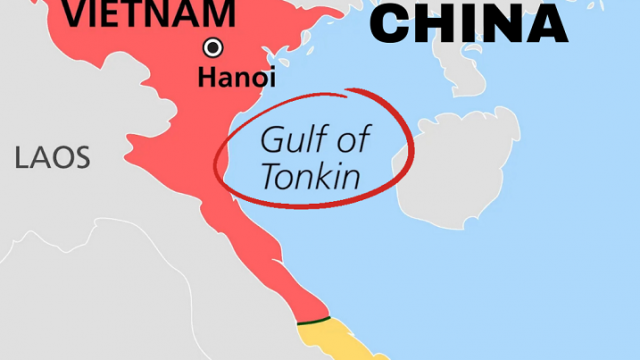In a move that has sparked interest and concern in the international community, China has declared a new baseline defining its territorial claims in the northern part of the Gulf of Tonkin, an area it shares with Vietnam. The announcement came through a statement published on the Chinese foreign ministry’s website earlier this month, outlining seven base points that, when connected, establish this new baseline. Referred to as Beibu Gulf in China, this region has seen tensions over maritime claims between China and neighboring countries.
The decision to declare this baseline raises questions about its timing and implications. The previously nonexistent baseline has emerged without clear justification, leaving observers puzzled about China’s motives. Analysts speculate on the possible motivations behind this move, with some suggesting it could be a strategic maneuver to assert territorial claims or to bolster China’s position in ongoing disputes over maritime boundaries.
Vietnamese maritime analyst Song Phan has raised concerns about the legitimacy of China’s new baseline, citing its inconsistency with the United Nations Convention on the Law of the Sea (UNCLOS). According to Phan, some of the base points are situated too far from the coast, raising questions about compliance with international maritime law. While Vietnam and China had previously agreed on the demarcation of the Gulf of Tonkin in 2000, the unilateral declaration of this new baseline threatens to complicate maritime activities in the region.
Carl Thayer, an emeritus professor at the Australian Defence Force Academy, has also weighed in on the issue, describing the new baseline as “excessive.” Thayer highlights the potential consequences of this move, including an expanded overlap between China’s exclusive economic zone and areas jointly used for fishing by Vietnam and China. Such overlaps could further escalate tensions and disputes in the region, impacting not only economic interests but also the broader geopolitical landscape.
To understand the significance of China’s announcement, it’s essential to grasp the concept of a baseline under UNCLOS. A baseline serves as the starting point from which a coastal state measures its territorial sea and other maritime zones. These zones grant different jurisdictional rights to coastal states, affecting issues such as sovereignty, resource exploitation, and navigation rights. By establishing a new baseline, China is asserting its jurisdictional claims in the Gulf of Tonkin, potentially reshaping the maritime boundaries in the region.
Critics argue that China’s unilateral action undermines the principles of UNCLOS and threatens the stability of maritime governance. The expansive internal waters claimed by China could restrict access for other countries, raising concerns about freedom of navigation and scientific research. Additionally, disputes over territorial claims could hinder cooperation on issues such as environmental protection and resource management, further exacerbating regional tensions.
Despite the implications of China’s announcement, the response from Vietnam and other stakeholders has been relatively muted. While some experts argue that the new baseline may violate UNCLOS, they acknowledge the existing agreement between Vietnam and China on maritime boundaries. However, the lack of a strong response from affected parties does not diminish the significance of China’s unilateral action, which has broader implications for regional security and stability.
As we move forward, it is crucial for the international community to keep a watchful eye on the developments taking place in the Gulf of Tonkin and other disputed maritime regions. Diplomatic efforts toward resolving maritime disputes through dialogue and negotiation are vital in preventing any escalation and ensuring that peace and stability are maintained in the region. China’s assertion of its maritime claims must adhere to international law and respect the rights of other coastal states. This will promote cooperation rather than confrontation in the pursuit of mutual interests.


